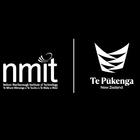Institute of Technology or Polytechnic
Nelson Marlborough Institute of Technology (NMIT) - Te Pukenga
New Zealand Certificate in Information Technology (Level 5)
This course is available
On-Campus
Level of Study
Certificate
Duration
19 weeks
Next start date
Expected
Summary
Turn your love of computers into a career and gain a qualification that will allow you to work in the Information Technology (IT) industry.
This six-month, full-time programme is a great starting point with lots of progression options. It is designed for people who already have a basic understanding of computers and want to develop this further.
With this Level 5 qualification, you will be able to apply for entry-level IT support roles in Tier 1 – first line of support.
A great starting point
The Certificate in Information Technology is a great place to start. After six months you will have a certificate qualification and have opened options for work or further study.
This programme pathways into the second half of the year, allowing you to work towards the:
New Zealand Diploma in Web Development and Design
New Zealand Diploma in Information Technology Technical Support
You can also pathway from here into the second semester of the first year of the Bachelor of Information Technology.
What will I learn?
This programme is made up of four individual courses.
These are also the same four courses that students on NMIT’s Diploma and Bachelor qualifications take, making it easy for you to decide later to study beyond this certificate level.
Communication for IT
Identify and explain how personal factors and behaviours can influence the communication process in business situations.
Apply effective interpersonal communication skills in business situations.
Demonstrate appropriate written and oral and visual presentation skills that are clear, concise, courteous and correct, using currently recognised business formats.
Discuss the influence of culture on communication in an IT context.
Demonstrate an understanding of the professional, legal, and ethical principles and practices required to act in a socially responsible manner as an emerging IT professional.
Computer Systems Architecture
Explain the principles of computer systems architecture.
Discuss the principles of operation of system hardware and software components for a current generation personal computer and explain how these components interact.
Construct a current generation PC-based computer system that satisfies the requirements of a case study.
Explain and apply safe working practices for computer systems construction.
Identify and apply problem solving processes relevant to troubleshooting for PC-based hardware and software components.
Use appropriate diagnostic tools, procedures and benchmark standards to optimise the configuration of components for a PC-based computer system.
Describe and implement protocols used in basic foundation networking including internet concepts.
Design and Develop Concepts
Explore the operation of IT businesses.
Identify a range of development life cycles used in IT.
Describe the importance of information management for an organisation and implement a solution for a specific case study.
Investigate the User experience (Ux) and usability concepts in IT and apply to a particular web case study using effective interface design.
Introduction to Software Development
Outline the software design and development process.
Select and apply a suitable design methodology to the development of a software application to satisfy set requirements.
Select, explain and use number systems and data types in the design of software for set requirements.
Use a programming language correctly and effectively to develop software applications for set projects.
Compare and contrast selected examples of procedural and object oriented programming.
Entry criteria
NCEA Level 2
Alternative Requirements
Applicants (including those over 20 years of age) who are unable to evidence that they meet Academic Entry Requirements, but who can demonstrate acquired skills for tertiary study gained through study, work and/or life experience, may be approved for alternative entry by the Curriculum Manager or delegate.
Other requirements
Students will require access to a recent model computer and a fast internet connection.
Special Entry
In exceptional circumstances an applicant who does not meet the entry requirements may be granted entry to the Programme where they supply evidence to satisfy the Head of Department or delegate of their ability to succeed on the Programme.
English language requirements:
IELTS test: Academic score of 5.5 with no band score lower than 5. TOEFL Internet-based test (iBT): Score of 46 (with a writing score of 14); PTE (Academic) score of 42 with no band score lower than 36; Cambridge English Qualifications: B2 First or B2 First for schools with a score of 162. No less than 154 in each skill. OET: Minimum of Grade C or 200 in all sub-tests. NZCEL - Level 4 (General) or (Employment). Language Cert - B2 Communicator International ESOL Written (LRW) HIGH PASS with no less than 25/50 in each skill and Spoken (S) PASS
Studying in NZ
Disclaimer